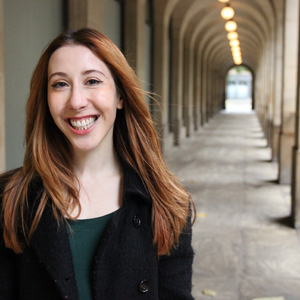You are viewing your 1 free article this month. Login to read more articles.
The sums don't work
The finances of indie publishing are broken. We need a radical rethink.
In an age when the price of a book often bears little relation to the effort invested in its creation, independent publishers in particular face a critical question: Should they charge more for their books?
The intrinsic value of independent publishing
As the managing director of Fly on the Wall Press (2024 Small Press of The Year, North, The British Book Awards), I know that independent publishers offer unique value propositions: they amplify diverse voices and stories that might be overlooked by larger publishers and they invest time in nurturing new talent. Despite these strengths, small publishers struggle to match the recommended retail prices (RRPs) of the "Big Five" publishers due to rising print costs and lower sales volumes.
The concept of pricing books goes back a very long way. In Ancient Rome, books were sold in bookshops, with prices varying based on the quality of materials and craftsmanship. However, the first mass-produced book with a fixed price was likely Johannes Gutenberg’s 42-line Bible in the 15th century. Its price was set at 30 florins—roughly three years’ wages for an average clerk at the time. This high price reflected the revolutionary nature of the printing press and the immense labour involved in its production.
Today, bricks-and-mortar UK bookshops are bound by very similar RRPs (typically £8.99-£10.99), with little variety, aside from perhaps translated literature. Online retailers such as Amazon do tend to offer dynamic pricing, based on algorithms assessing demand, though this is typically a price reduction.
Industries such as theatre, music and art have successfully tied their pricing to perceived value, artist reputation, and production costs. Could the publishing industry adopt similar strategies?
Sam Jordison of Galley Beggar Press said: "We price books according to what we think shops will support and sell. Given the cost of producing them, our prices are far too low. We’re now at the absurd point where a paperback book can cost less than a pint of beer in London—a symptom of market failure in the book industry. UK book prices have not risen in line with the costs of production. They are priced at a much lower point than most other countries in Europe and the USA. We would love to have a price on our books that reflects the cost of production more closely, and allows us and—importantly—our authors to actually get some financial rewards that reflect our labours."
In order for small publishers to grow, and to be in a position to hire, book pricing across the whole industry must be reassessed.
The Emma Press calculated what a poetry pamphlet RRP might look like once factoring in employees’ time: "We’d have to price a poetry pamphlet at £20 to make back the cost of labour, production and sales, on 300 copies. Which arguably would make it even less likely that we’d sell 300 copies, let alone cover our costs or make a profit."
Currently, none of the small publishers surveyed were able to sustain salaries, or hire new staff at minimum or living wages, from current RRPs/book sales alone, and rely on funding or freelance work. Eloise Millar, Galley Beggar Press, added: "Book prizes have a huge impact on sales numbers... but when we’re not in that position, the sales almost certainly don’t contribute to wages... our own wages are well below minimum wage (something that we would not find acceptable, offering to other people)."
In order for small publishers to grow, and to be in a position to hire, book pricing across the whole industry must be reassessed. This in turn would help support authors to make a living wage from book royalties—a figure which decreases year on year, according to ALCS surveys of the median wage writers receive annually from creative writing.
Rethinking book pricing
What if we could set book prices based on their true value? This would require all of the big five publishers to come on board, pricing titles based on:
- The author’s experience and reputation (a Hilary Mantel novel might be £20; a début novel might be £10 to encourage higher sales volume)
- Time invested in writing and editing (a novel may take several years to write, and then be developed across several years through the publishing house)
This approach could also involve:
- Tiered pricing: Higher prices for collector’s editions or signed copies
- Dynamic pricing: Adjusting prices based on demand or critical reception
- Charitable and educational schemes: As the Big Five publishers would be able to charge more for their high-profile authors, the extra funds could be donated into various schemes, notably to support working class and diverse emerging writers, and free book donation schemes for libraries and schools.
Societal values and the price of knowledge
This discussion inevitably leads us to broader questions about societal values. What price can we place on education and storytelling? How do we balance accessibility with fair compensation for creators? Heather McDaid, Co-Publisher at 404 Ink said: "In a utopian world, books and the arts more broadly would be well-funded, supported and accessible."
There are already utopian schemes, whereby the National Literary Trust or Penguin Random House’s World of Stories project buy children’s books to place in primary school libraries across the UK—the Emma Press says this "has been a crucial income generator" for them. This is an example of the value of books being so high that we simply cannot put a price on it: it must be free, for the value of education. I’d love to see state-supported bookshop discounts for students and over 60s, for example, in the same way that bus fares are subsidised.
In an ideal world, Galley Beggar Press would love for UK RRPs to match US titles: "I think there is a massive problem with book pricing—we’re famously a nation of readers, but also one that is not prepared to pay realistic prices for books. For example, Anna Burns’ Booker Prize-winning Milkman is priced at $17.00 in the US (around £13.50) and £9.99 in the UK."
As we grapple with these questions, it is clear that the current pricing model for books does not reflect the effort invested in their creation. Independent publishers, in particular, may need to consider bold new approaches to pricing that better align with the unique value they provide.
By reimagining how we price books, we have an opportunity not only to support the sustainability of independent publishing but also to reaffirm the value of literature, education and diverse voices in our society. It is a complex challenge, but one that could reshape the future of publishing and our relationship with books.

















